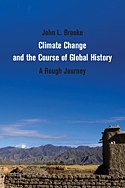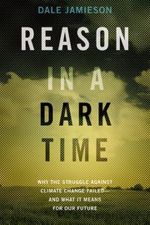 Dale Jamieson is a philosopher long acquainted with the work of climate scientists. His recently published book was begun 25 years ago, “an avocation that became an obsession”. He used to joke when asked why the book wasn’t appearing that he was waiting to see how the story ended. Then it dawned on him after the failed 2009 Copenhagen conference that there was no ending, and certainly not a happy one. The continuing journey is largely a matter of salvaging what we can from the wreckage. The book’s title sets the stark picture: Reason in a Dark Time. Why the Struggle Against Climate Change Failed – and What it Means for Our Future.
Dale Jamieson is a philosopher long acquainted with the work of climate scientists. His recently published book was begun 25 years ago, “an avocation that became an obsession”. He used to joke when asked why the book wasn’t appearing that he was waiting to see how the story ended. Then it dawned on him after the failed 2009 Copenhagen conference that there was no ending, and certainly not a happy one. The continuing journey is largely a matter of salvaging what we can from the wreckage. The book’s title sets the stark picture: Reason in a Dark Time. Why the Struggle Against Climate Change Failed – and What it Means for Our Future.
Not surprisingly with such a title the book is not a call to action but rather an invitation to understand our failure and to think about what we might learn from it and how best live in the changed world we are creating.
Jamieson proposes a variety of reasons for our failure. Scientific ignorance is one. He recalls British scientist and novelist C.P. Snow’s famous “two cultures” claim in 1956 that the British political and cultural elite, educated in the humanities, was quite ignorant and even contemptuous of science. The “two cultures” are alive and well in the United States today, including among the political elites. In particular the weight of peer-reviewed science is often not grasped. Jamieson presents an illuminating explanation of the process of peer review which enables the incremental advance of solid science. It is scientific ignorance which has allowed climate change denial to find a foothold, aided by powerful corporations anxious to prevent or delay action which might affect their profitability.
Continue reading “Reason in a Dark Time”
Like this:
Like Loading...
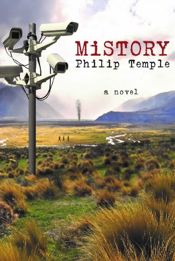 Anyone who follows the science of climate change knows that we are heading for environmental and social turmoil along our current path. In his new novel MiSTORY author Philip Temple imaginatively pictures what that turmoil might mean decades on from now.
Anyone who follows the science of climate change knows that we are heading for environmental and social turmoil along our current path. In his new novel MiSTORY author Philip Temple imaginatively pictures what that turmoil might mean decades on from now.
 Dale Jamieson is a philosopher long acquainted with the work of climate scientists. His recently published book was begun 25 years ago, “an avocation that became an obsession”. He used to joke when asked why the book wasn’t appearing that he was waiting to see how the story ended. Then it dawned on him after the failed 2009 Copenhagen conference that there was no ending, and certainly not a happy one. The continuing journey is largely a matter of salvaging what we can from the wreckage. The book’s title sets the stark picture:
Dale Jamieson is a philosopher long acquainted with the work of climate scientists. His recently published book was begun 25 years ago, “an avocation that became an obsession”. He used to joke when asked why the book wasn’t appearing that he was waiting to see how the story ended. Then it dawned on him after the failed 2009 Copenhagen conference that there was no ending, and certainly not a happy one. The continuing journey is largely a matter of salvaging what we can from the wreckage. The book’s title sets the stark picture: 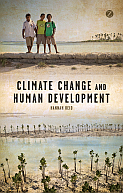 It has been clear for some years that climate change is affecting poorer populations sooner and more gravely than it is economically developed societies. There is little sign that the wealthy nations are much disturbed by this fact, and no sign that it has any braking effect on the inexorable drive to find and exploit fossil fuel reserves. But there are some who care and they can show a dogged persistence in demanding that we take notice of how drastically the climate change for which we are responsible is threatening the lives of people with few defences against it.
It has been clear for some years that climate change is affecting poorer populations sooner and more gravely than it is economically developed societies. There is little sign that the wealthy nations are much disturbed by this fact, and no sign that it has any braking effect on the inexorable drive to find and exploit fossil fuel reserves. But there are some who care and they can show a dogged persistence in demanding that we take notice of how drastically the climate change for which we are responsible is threatening the lives of people with few defences against it.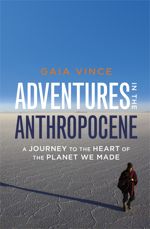 Science journalist
Science journalist 